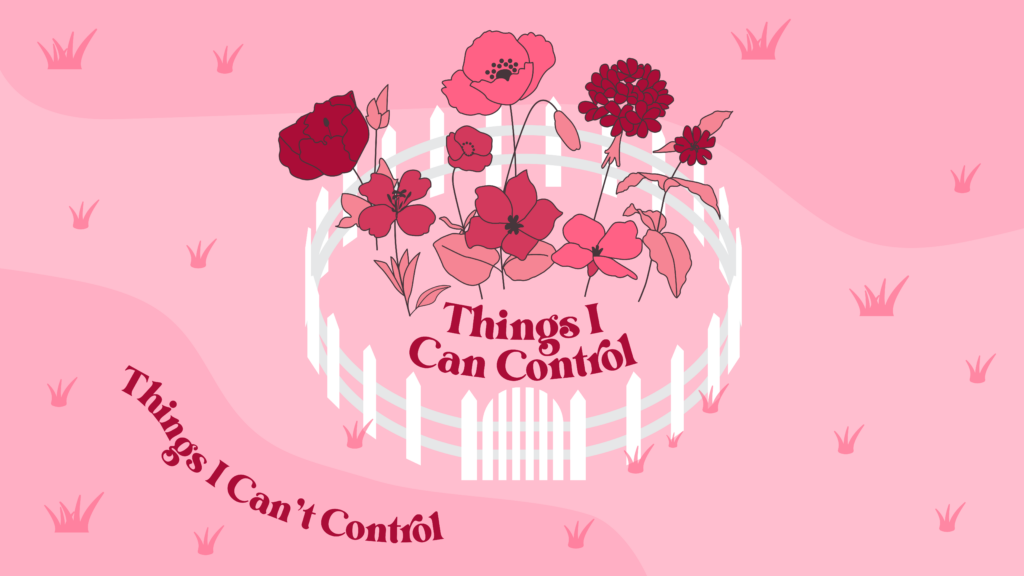


Written in partnership with Jessica Baladad, Breast Cancer Survivor, NBCF Community Ambassador, and Boundaries Expert
When someone is diagnosed with breast cancer, it can feel like everything changes in an instant. An unexpected change that some women face happens when, seemingly overnight, their lives and health suddenly become an open book. This can happen when friends, loved ones, or acquaintances begin asking personal questions about their diagnosis, treatment, or overall health.
If you don’t feel comfortable sharing certain details about your diagnosis, you may wonder how you can kindly—yet firmly—set boundaries for what you are comfortable sharing and what to do if someone crosses a boundary you’ve set.
We spoke with Jessica Baladad, a breast cancer survivor and boundaries expert who has worked in the mental health field for 15 years, to learn about setting and protecting healthy boundaries. Jessica shared her professional knowledge and personal experience with us to help support women who wish to set healthy boundaries during and after their breast cancer experience.
Watch Jessica’s full video on setting healthy boundaries here.
Jessica shares that boundaries are limits that identify what you are okay with and what you aren’t okay with. They are needed to help us recognize what is ours to own and what we’re responsible for in our lives.
Setting boundaries can help you protect your time, energy, mental health, and even physical well-being by controlling or limiting the flow of information, conversations, and commitments between yourself and others. For example, choosing not to share details about your treatment plan with co-workers or other groups may be a boundary you choose to set. Boundaries can give you the freedom to make decisions that are fulfilling and life-giving, even in the midst of a difficult season of life.
Some areas that breast cancer patients may want to set boundaries for include:
Jessica explains that boundaries are like a circle. On the inside of the circle are you and the things you have control over: your thoughts, feelings, mood, attitude, behaviors, and decisions. Everything else—the things you can’t control—are on the outside of the circle.
As a breast cancer patient, you get to choose the size of your circle, who you share personal details with, and when and how much you share with them.

Jessica reminds us that, as a breast cancer patient, you have a say in your treatment plan. That includes setting boundaries and goals for your treatment. For example, after consulting with your medical team, you get to decide what surgeries to have and which treatments you will undertake.
You are also in control of who is on your medical team. If you are uncomfortable with or unsure of a suggestion from your care team, seeking a second opinion is a powerful form of self-advocacy to make sure you’re on the correct path to achieving your treatment goals.
“Your time and your energy are the two most finite resources that you have. When you’re able to set boundaries, you preserve your most finite resources so that you have the capacity to be your best self,” Jessica says.
Think about what happens when you run out of time and you don’t have energy—you’re exhausted, you’re run down, and you don’t feel like you’re in control. For breast cancer patients, depleting your time and energy resources can impact not only your mental health but your physical health as well. By setting healthy boundaries and sticking to them, you can preserve your time and energy in order to concentrate on maintaining your physical, mental, and emotional well-being throughout diagnosis and treatment.
According to Jessica, you know you need boundaries when you feel like you can’t do anything for yourself and you don’t have ownership of your time and energy.
There are four steps to setting healthy boundaries for yourself during treatment and beyond:
Step 1: Identify what you need to feel safe. What are you okay with and not okay with allowing to happen in your life? This may be the amount of time and energy you are expending in volunteer roles, board positions, or other non-essential tasks and commitments. While it may not be necessary to stop participating in all tasks that are meaningful to you, it may be wise to cut back on them if you feel like they are overly depleting your time and energy.
Step 2: Communicate your needs and make them known. Express how you feel, what bothers you, and what outcomes you would like to have for the most important areas of your life, such as your relationships, emotional health, and performance. If the dynamics or time spent in certain areas of your life need to change in order to protect your time and energy, you may consider having direct conversations with those involved, clearly outlining what you are able to commit to, and what you aren’t able to commit to at this time.
Step 3: Decide the consequences if your boundaries are violated. Try using “if/then” statements and being clear that you are not open to certain kinds of discussion. These statements may sound like:
“If you are going to continue asking me questions about my diagnosis, then I will end this conversation and talk to you another time. But if you want to talk about something else, I’m okay with that.”
“Thank you for your thoughts about my diagnosis, but I am confident with the treatment plan my doctor has provided me with.”
“I am not open to hearing comments and advice regarding my treatment at this time. But I’m happy to talk about other things.”
Step 4: Have a support system. Join a support group or identify a trusted friend you can go to when you need help setting or enforcing boundaries you’ve placed. This person can be a listening ear when you need to clarify what you want your boundaries to be and what to do if a boundary is disregarded.
When you first begin to set healthy boundaries in your life, it’s natural to feel overprotective of them, and it’s common for people to test new boundaries, especially if you’re new to setting them. But Jessica advises that you may not want to be too quick to cut people our of your circle if you can help it.
She suggests you ask yourself why you are setting this boundary and what the ideal outcome you want to come from it is. If someone continues crossing a boundary you have set and it is affecting your desired outcome, you have the power to decide what to do about it, such as replying with prepared “if/then” statements or firmly but kindly ending a conversation that you are not comfortable with or don’t have the energy for.
When you choose to conserve your time and energy by setting healthy boundaries, especially during cancer treatment, you are able to focus more on your physical well-being, mental health, and healing.
National Breast Cancer Foundation is here for you as you navigate a breast cancer diagnosis. Visit our website to learn about NBCF breast cancer support groups, obtain free educational resources, or find a patient navigator in your area.
It is essential for patients to share all relevant health information with their doctors and medical team. The tips in this post should only apply to conversations with non-medical professionals who are not part of your care team.
Donations are always appreciated, but there are lots of great ways to get involved.
Please can I have more information on breast cancer and her2 please thank you
Hi Tamatha. We have educational information about breast cancer types, stages, treatments, and more on our website. Please visit this link to learn more about breast cancer: https://www.nationalbreastcancer.org/about-breast-cancer/